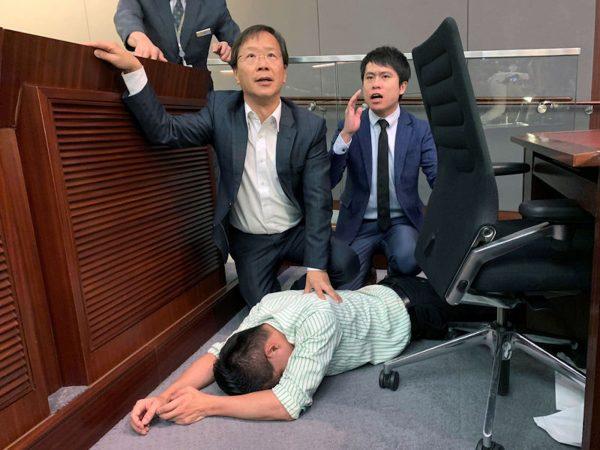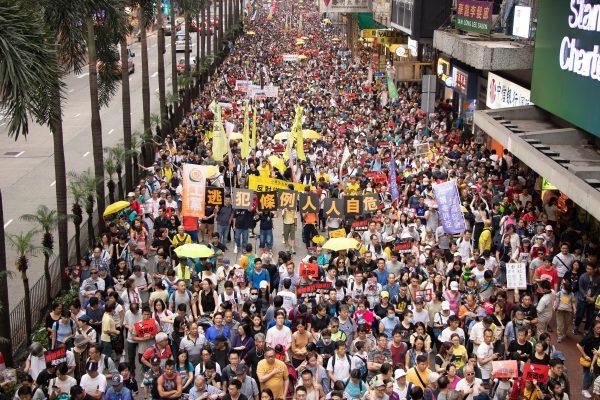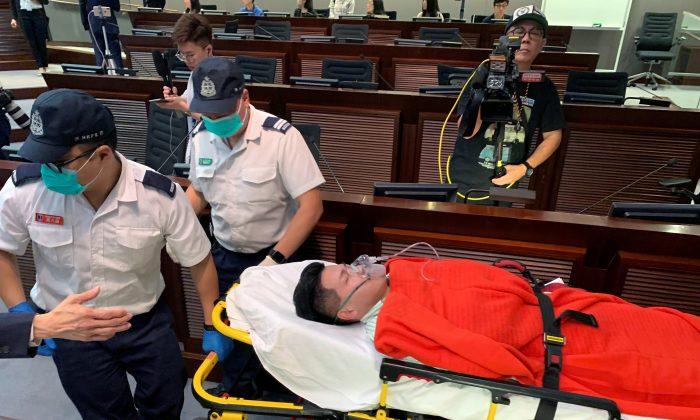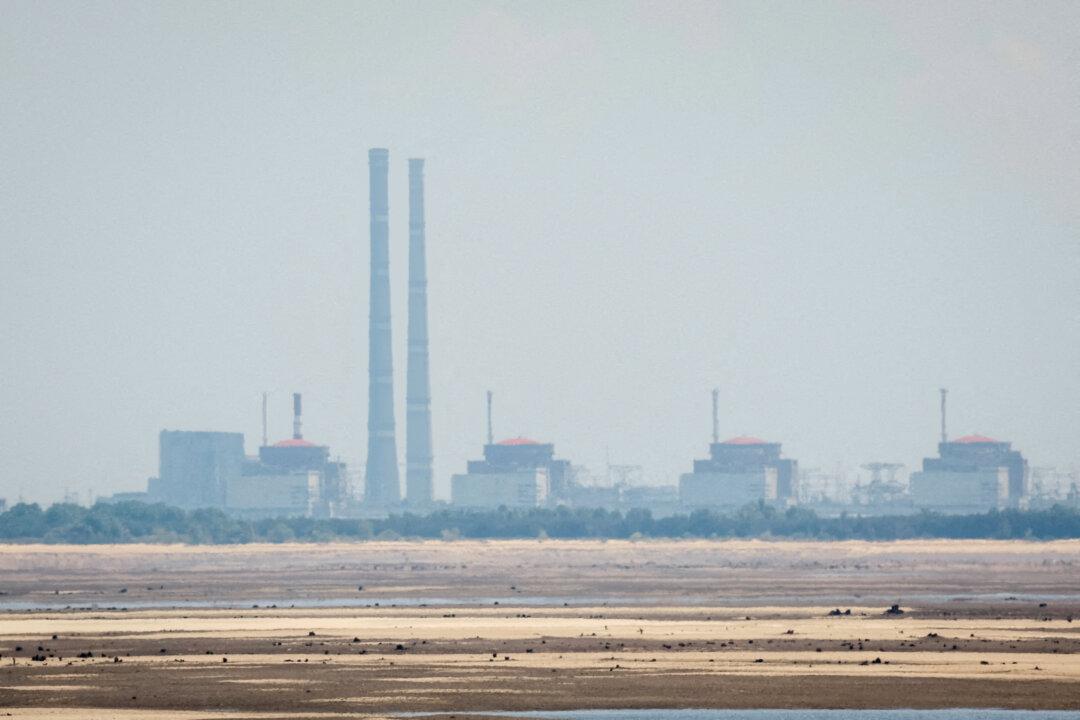HONG KONG—Scuffles broke out in Hong Kong’s legislature on May 11 between pro-democracy lawmakers and those loyal to Beijing over a proposed extradition law that will extend Beijing’s powers over the China-ruled financial hub.
One person was taken to hospital.
The former British colony is trying to enact rules that would allow people accused of a crime, including foreigners, to be extradited from the city to countries without formal extradition agreements, including mainland China.
Opponents fear the law would erode rights and legal protections in the free-wheeling financial hub that were guaranteed when it returned to Chinese rule in 1997.
Tempers boiled over when pro-democracy lawmakers and the pro-Beijing majority tried to hold separate hearings on the bill. The democrats say the pro-China lawmakers breached rules in forming their own committee to try and ram through the legislation.
Lawmakers clambered over tables, cursed and piled into each other as security personnel tried to maintain order.

One pro-democracy lawmaker, Gary Fan, fell heavily and had to be stretchered to hospital. Several pro-Beijing lawmakers also fell, one needing a sling for his arm.
“It’s a sad day for Hong Kong,” said pro-establishment lawmaker Elizabeth Quat. “We laughed at (scuffles in) Taiwan’s legislature in the past, but Hong Kong’s is even worse.”
The bill is the latest lightning rod for Hong Kong people worried about Beijing’s powers over the city that was promised a high degree of autonomy under a “one country, two systems” formula when it returned to Chinese rule.
Even Hong Kong’s normally conservative business community has expressed opposition. The International Chamber of Commerce said the bill had “gross inadequacies.”

US Congress Frets Over China Reach
Hong Kong’s Bar Association has said the law lacks sufficient safeguards for fair trial in mainland China.The amendments would allow criminal suspects from any region—including mainland China—to seek extradition without the Legislative Council (LegCo) signing off on the requests. The head of the city’s government, the chief executive, would be able to approve the extradition requests directly.
Hong Kong leader Carrie Lam has insisted on the need for arrangements to extradite offenders to China and Taiwan, an island Beijing claims as its own, and other countries that do not have extradition treaties with the city.
She has cited the case of a Hong Kong man who allegedly murdered his girlfriend in Taiwan last year, and who has since fled back to Hong Kong, as a major reason for rushing through the legislation with minimal public consultation.
A spokesman for Hong Kong’s authorities expressed “utmost regret” at the chaos in the legislature and urged lawmakers to “resume rational discussions.”
Hong Kong’s opposition democratic lawmakers hold less than a third of the seats in the legislature, meaning they cannot veto the bill when it goes to a final vote, possibly in the next few weeks.






Friends Read Free